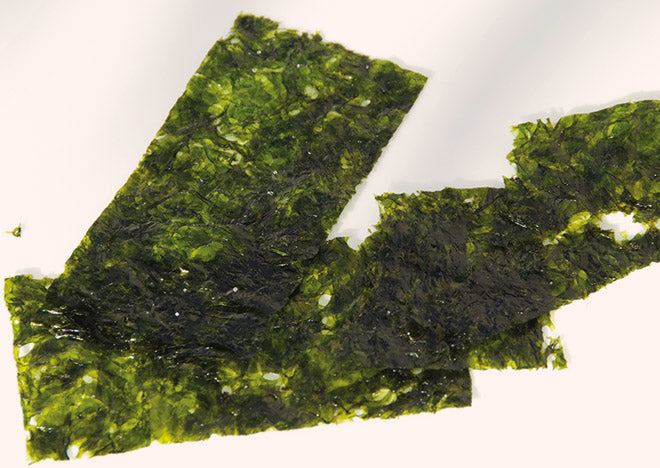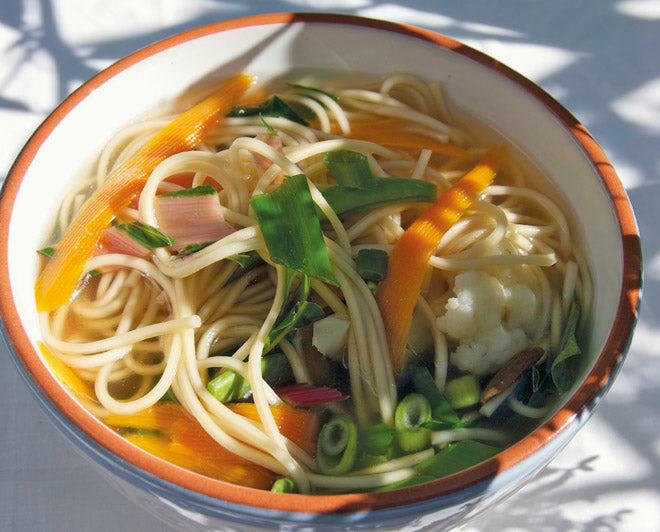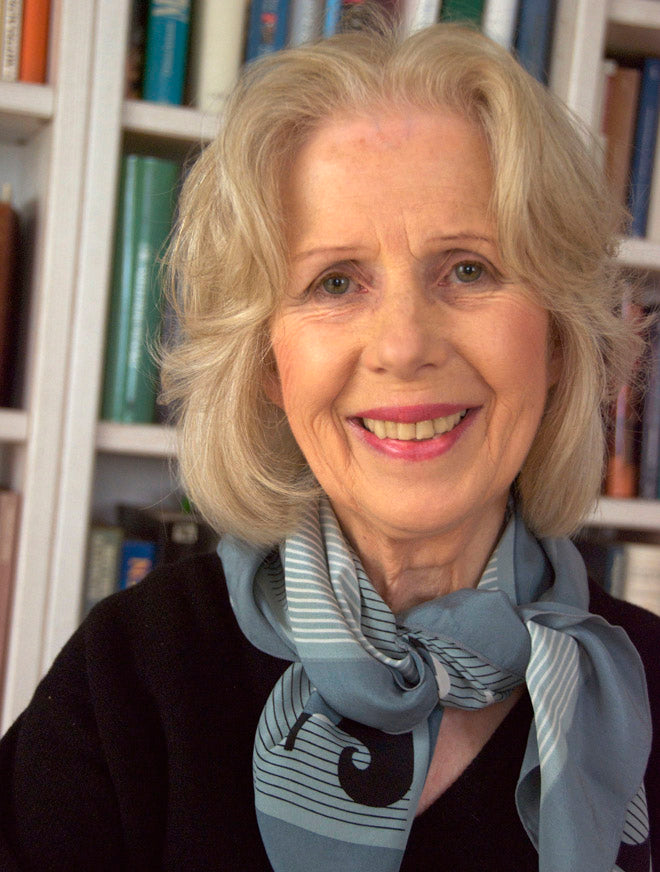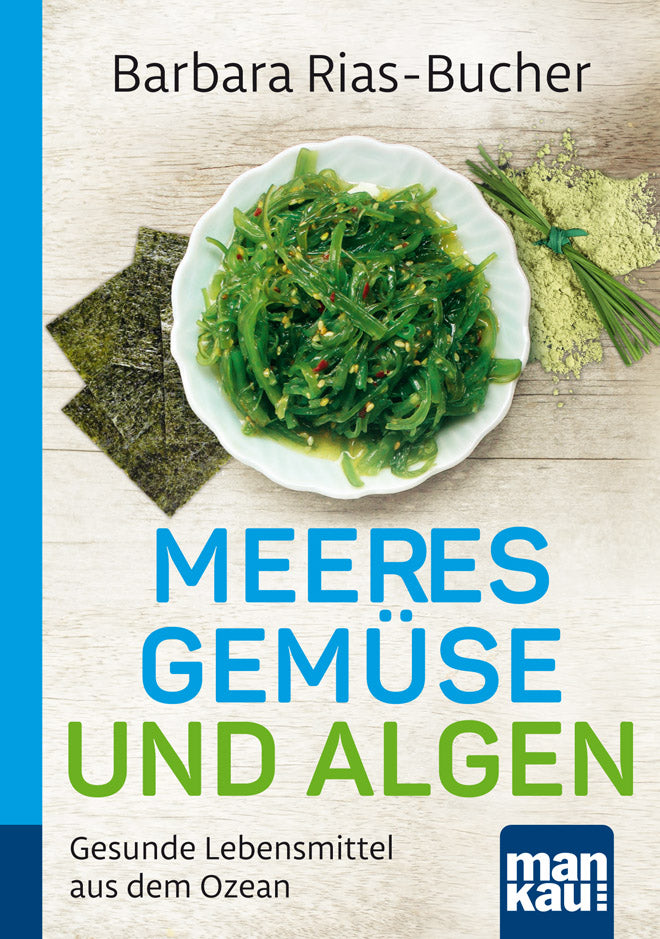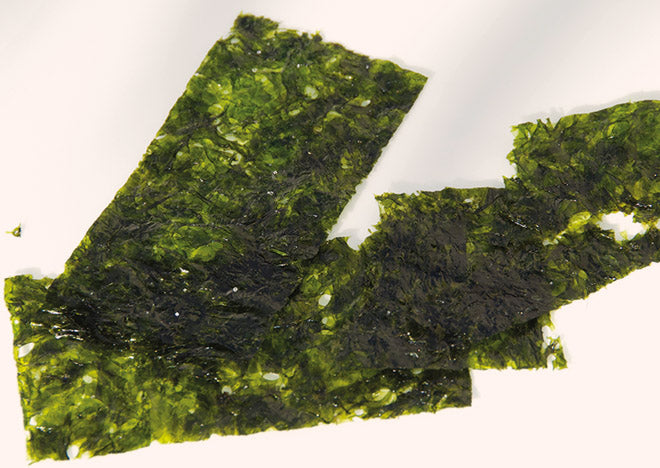
Neither fish nor fowl
Neither fish nor fowl
Sea vegetables and algae replace animal products and provide us with vital nutrients
The new compact guide by Dr. Barbara Rias-Bucher deals with the valuable ingredients and health effects of the maritime power plants. Refined recipes from Asia and Europe delight gourmets and health-conscious people alike.
Thousands of years old tradition in East and West
Algae have been an important food for the inhabitants of coastal regions and islands for thousands of years, and in the future they will become increasingly important in the diet worldwide because they contain high amounts of protein, essential fatty acids, minerals and vitamins.
In her latest compact guide "Sea Vegetables and Algae", nutrition expert and cookbook author Dr. Barbara Rias-Bucher presents detailed portraits of edible algae that can be purchased as sea vegetables or as dietary supplements. She provides knowledgeable information about health aspects and bioactive substances in algae and gives important tips for the correct use, including with regard to the high iodine content. Interesting and tasty dishes from eastern and western algae cuisine show the full diversity of this traditional food, which is used in vegan and macrobiotic diets as an alternative to animal products.
Algae as an alternative
People in China, Polynesia, Hawaii and the island regions of the Far East have probably been using edible seaweed as a staple food for around 10,000 years. East Asia's long coastlines with rich and diverse marine flora ensured a free supply of these protein-rich plants, which contained essential minerals and vitamins and little fat but valuable fatty acids.
In Europe, too, seaweed has always been a traditional food for coastal dwellers: for example, laitue de mer (sea salad) and haricot de mer (sea spaghetti) are known in northern France, laver (nori) and kelp (kombu), carrageen (Irish moss) and dabberlocks (wakame) in Ireland, Wales and Scotland. But while in the West seaweed contributed more to replenishing the scarce food supply and was considered the food of the common people, in the Far East, plants from the sea have always been valued as an equal part of a diet in harmony with nature.
Today, the majority of algae harvest is used in the textile, leather and cosmetics industries. Algae are additives in a variety of foods or are used as nutritional supplements and medicines, as they are considered a so-called superfood due to their richness in nutrients.
Wholesome and vegan
In the 1980s, algae were discovered in this country as a complete food and plant-based alternative to fish and meat. Sea vegetables and algae make a significant contribution to ensuring that even a vegetarian lifestyle provides the macronutrients protein, fat and carbohydrates as well as the micronutrients vitamins, minerals and trace elements. Proteins with all essential amino acids and carbohydrates with important fiber are plentiful.
As with all plants, the fatty acid pattern is more beneficial for the organism than animal foods because it reduces the risk of diet-related diseases. The marine plants provide essential fatty acids, including the vital omega-3 fatty acids.
Vitamins and minerals are also important for health. Many sea vegetables contain more vitamin C or beta-carotene, a precursor to vitamin A, than fruit and vegetables. They are one of the few plant sources of vitamin B12, which is otherwise only found in animal foods. Just like sea fish, sea vegetables and algae contain plenty of iodine, a trace element that is one of the vital micronutrients as a component of thyroid hormones. Another health benefit is that sea vegetables absorb minerals from sea water.
Book tip:
Dr. Barbara Rias-Bucher: Sea vegetables and algae. Compact guide. Healthy foods from the ocean. Mankau Verlag, 1st edition July 2017, paperback, 11.5 x 16.5 cm, full color, 127 pages, 8.99 euros (D) │ 9.20 euros (A), ISBN 978-3-86374-386-4.
Link recommendations:
More information about the book "Sea Vegetables and Algae"
To the reading sample in PDF format
More about the author Dr. Barbara Rias-Bucher
To the Internet forum with Dr. Barbara Rias Bucher
